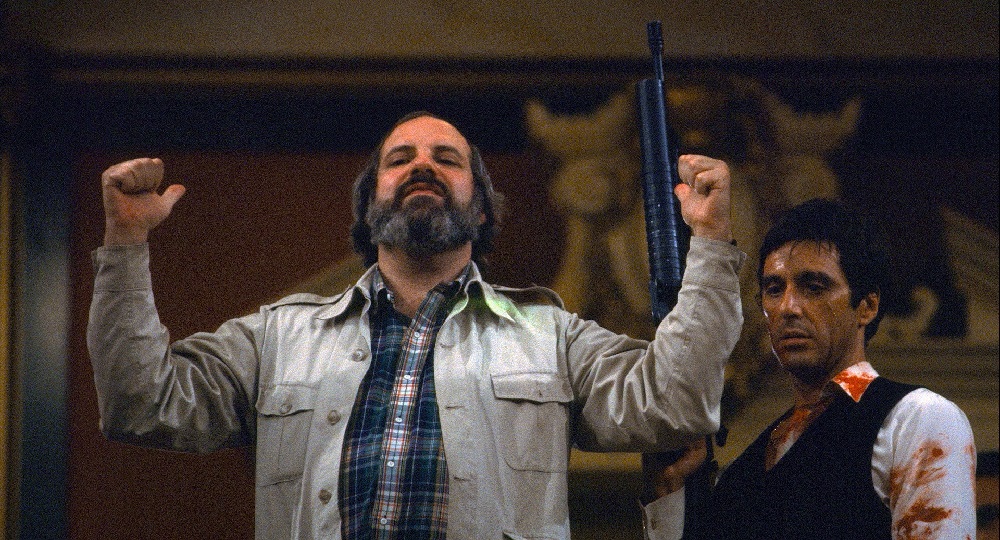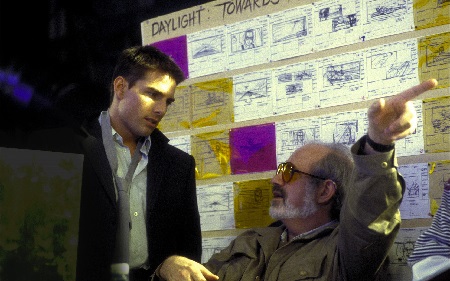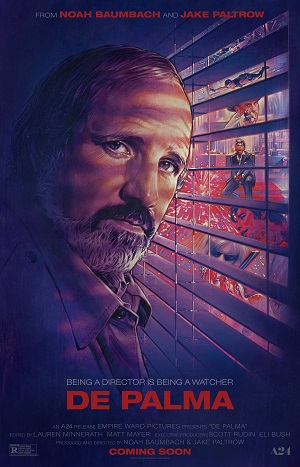
Fascinating De Palma an Essential Cinematic Conversation
The best decision directors Noah Baumbach (Frances Ha) and Jake Paltrow (Young Ones) make in regards to their Hollywood documentary De Palma is let the man at the center of the maelstrom, fiery, opinionated and legendary filmmaker Brian De Palma, do all of the speaking for himself. He alone speaks on his career. He alone guides the viewer through each and every one of his movies, including his student films. He alone opens the viewer’s eyes to an era of auteur-driven Hollywood filmmaking unlike any that came before, and almost rest assured unlike anything that will ever come again.
De Palma isn’t biography. Instead, it is more a how-to manual for wannabe directors while also a candid retrospective where the filmmaker in question dissects the pluses, minuses and the numerous layers lying in-between as it comes to each and every one of his films. Listening to him wax poetic about legendary misfires like Bonfire of the Vanities and Mission to Mars is worth the price of admission all by itself, while his canny reevaluation of titles that initially underwhelmed at the box office only to become thought of as late 1980s, early 1990s classics like Carlito’s Way and Casualties of War is positively fascinating.
The portion analyzing his days in film school, becoming a renegade underground filmmaker working with equally adventurous actors like Robert De Niro and William Finley, is funny, insightful and thought-provoking, as is his understanding of the French New Wave, Alfred Hitchcock’s Vertigo, Orson Welles’ The Magnificent Ambersons and Alexander Mackendrick’s The Sweet Smell of Success. The way he talks about coming up with the idea for his unsettling, diabolically clever body-horror thriller Sisters is fascinating, as is how he attempts to counteract claims of misogyny in his films, especially as it pertains to Body Double and Dressed to Kill, De Palma thoughtfully understated as he attempts to see things from all perspectives, yet also fiercely protective of the narratives he fastidiously constructed in order for those stories to meet with what he felt was success.
It can all read a little like inside baseball, a documentary made for cinema connoisseurs and relatively few others. But, much like author Peter Biskind’s essential Easy Riders, Raging Bulls: How the Sex-Drugs-and-Rock ‘N’ Roll Generation Saved Hollywood, Baumbach and Paltrow’s movie is far more engaging and universal than most outsiders might initially think it would be. De Palma, standing alongside fellow ’70s wunderkinds like Martin Scorsese, Steven Spielberg, Francis Ford Coppola and George Lucas, dissects the pluses and minuses of the era, and as such adds an extra layer of insight into why it is the major studios release the films they do now in comparison to the ones they were eager to finance then.
I’m admittedly in the De Palma fan club. In my opinion, the man has never made a feature not worthy of at least a cursory glance, even recent underwhelming titles like The Black Dahlia and Passion having positive elements marking them the work of a superlative cinematic genius with precious few equals. More than that, Carrie, Dressed to Kill, Blow Out and The Untouchables are four of my absolute favorite films of all-time, and I’ve probably watched all of them a dozen-plus times over the past 25 or so years.
Yet, trust me when I say De Palma is superb. The filmmaker’s willingness to give credit where it is always due, especially to editors, composers (especially as it pertains to Bernard Herrmann, Ennio Morricone and Pino Donaggio), writers and actors, is commendable, as is his ability to analyze his shortcomings and know where he should have gone in an entirely different direction. Just listen to him talk about Bonfire of the Vanities for more on that front, one hard-pressed not to agree when he talks about what would have made that calamity work. It’s this frankness, free of artifice, devoid of a censor, that makes this documentary what it is, and what a joy it would be indeed of Baumbach and Paltrow could get the man’s fellow ‘70s phenoms (Scorsese, Spielberg, et al) to do the same at some point in the very near future.
Film Rating: 3½ (out of 4)






